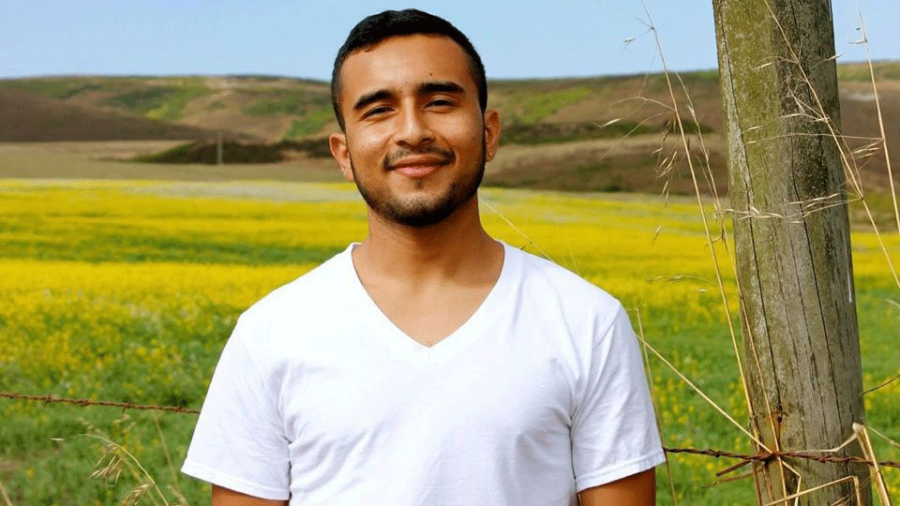Zamora Uncovers His Identity in Unaccompanied
Colgate University welcomed back a remarkable young poet, Javier Zamora, for an afternoon of reflection and active listening on Wednesday, February 7. Zamora shared with students, faculty and community members a selection of his beliefs, poems and words of advice from his debut poetry book, Unaccompianed. His dramatic rhetoric humanizes his struggles to migrate through a political and physical landscape; his poems are written with a true encompassing sense of raw emotion and portray a picture of struggle on a profoundly personal level. Zamora’s charged and hope-filled poetry of suffering is lyrical in nature; his book of poems speaks to the deteriorating values of democracy in the United States today as he approaches the polarizing topic of immigration with a sense of urgency and personal relevance.
Born in El Salvador in 1990, Zamora came to the United States in 1999, attended the University of California, Berkley and got his BFA at New York University. He is a 2016-2018 Wallace Stegner Fellow at Stanford University and holds fellowships from Colgate University and the National Endowment for the Arts, among others. His first full-length collection of poems explores how immigration to the United States and the U.S. funded Salvadoran Civil War (1980-1992) have had an impact on his family.
Zamora began writing at the age of 18 after finding inspiration in Pablo Neruda’s poetry; he emphasized the important realization of his poems being written in both English and Spanish, as his identity as both an American immigrant and a Salvadoran refugee combines both aspects of the two differing languages. When asked about dreams after the poetry reading, Zamora responded with, “I used to dream in Spanish, not anymore.” He explained that he thinks he is losing some part of his El Salvadorian language and identity, and said that through his poetry he questioned who he is.
After listening to Zamora read and explain his book, first-year Christina Weiler said, “I think Javier is incredibly gifted with the ability to translate experience, regardless of how painful or complex, into digestible works of art. Through both poetry and candid conversation, he demonstrated that poetry can deliver heavy social messages in precise, light-weight and even endearing terms. Hearing Javier has made me hopeful for increased public support for social movements, like immigration rights.”
Zamora stressed the importance of poetry as a means through which he is able to reflect and analyze the baggage he carries. His advice for students when they leave college is to be nice to everyone, because you never know their past experiences.
The stunning and vivid poetry throughout Unaccompianed documents Zamora’s three tries in crossing the United States-Mexico border, including hours spent in jail as a child before being deported back to Mexico. He also describes the difficulties of the paths to American citizenship, namely that there are only two options: marriage and visa. When asked who his target audience is, Zamora responded by saying that poetry is for everyone. Specifically, Zamora hopes to reach people raised in the United States who lack the knowledge of the U.S. funded civil war in El Salvador; he wants to create empathy for his refuge family and an understanding of the struggles of immigration.
Zamora ended the afternoon by bringing up the notion that poetry truly speaks in times of trouble, specifically political and national distress. Artists of all means dream of a better world, and for Zamora, he has chosen poetry as his medium. His words translate dreams for a better country, a fair immigration system, and a world of acceptance and understanding through powerful rhetoric, rhyme and rhythm.
Contact Caylea Barone at [email protected].
Caylea Barone is a senior from LaGrangeville, New York concentrating in environmental studies and art and art history with an emphasis in studio art. She...






